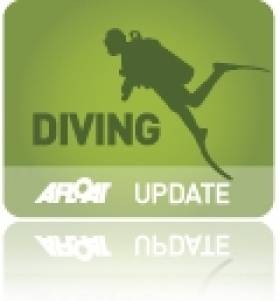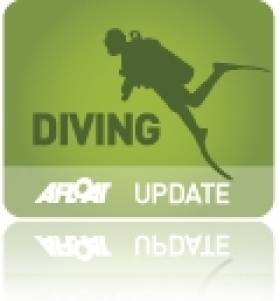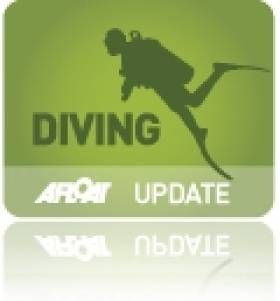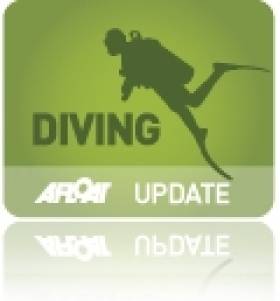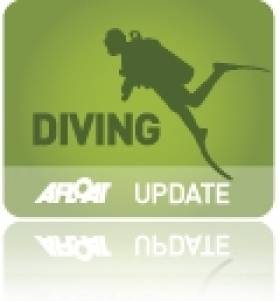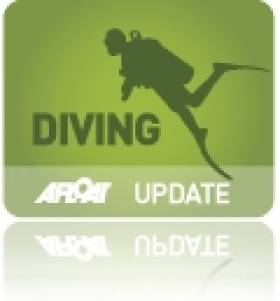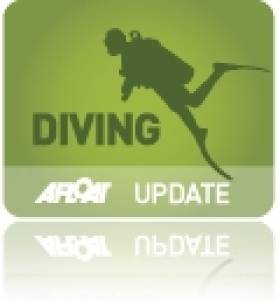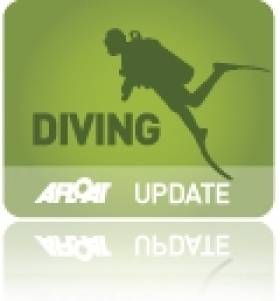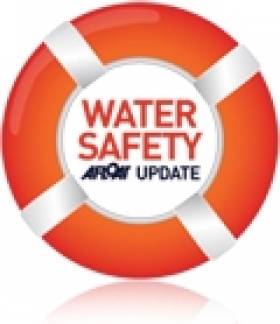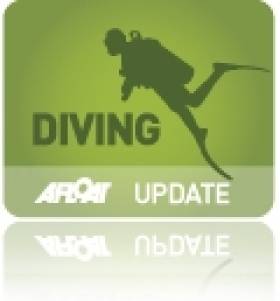Displaying items by tag: diving
#Diving - Sea & Sea has been appointed as the British and Irish regional office for American diving training provider Scuba Diving International (SDI), as Divernet reports.
The Devon-based diving gear distributor will also represent SDI's sister business Technical Diving International (TDI) in providing "top-notch training and quality materials" according to Sea & Sea managing director David Millin.
Inishbofin Diving Death Brings Summer Death Toll To Six
#Diving - The Irish Underwater Council's national diving officer says the diving community has been "devastated" by the "unprecedented" number of diving deaths in recent weeks.
Dermot Moynihan's comments in The Irish Times come after an incident this past Monday (14 July) in which a 55-year-old man got into difficulty after a controlled ascent from a 40-minute dive off Inishbofin in Co Galway.
Despite the best efforts of a local nurse and doctor on scene, the man was pronounced dead after transfer to Mayo General Hospital.
His death marks the sixth diving fatality around the Irish coast since 14 June, when a Limerick man died while diving near Roches Point in Cork Harbour.
The following day, a Polish national died after a rapid ascent from a dive off Malin Head in Co Donegal, and a fortnight later two men in their 60s lost their lives after a diving incident at a wreck site off the Baltimore in West Cork.
The latest tragedy comes just two days after 57-year-old Presbyterian minister Rev Dr Stewart Jones died in a diving-related accident off the Donegal coast, when he was struck by a 'freak wave' on the surface following an ascent from a combination dive - a highly technical practice only for experienced divers.
Earlier this week Irish Water Safety chief John Leech called on divers to ensure they are well trained and "diving fit", highlighting the risks that even normal dives present.
The Irish Times has more on the story HERE.
Water Safety Chief Urges Divers To Be 'Diving Fit'
#Diving - Irish Water Safety chief John Leech has called on divers to ensure they are well trained and 'diving fit' before going underwater following the deaths of five divers in separate incidents around the Irish coast.
The latest casualty, who died after an accident off St John's Point near Killybegs in Co Donegal on Saturday (12 July) has been named as 57-year-old Presbyterian minister Rev Dr Stewart Jones from Strabane, Co Tyrone.
Speaking this morning on RTÉ Radio 1's Morning Ireland, Leech said: "Diving by its nature is not risk free - it's all a case of managing risk."
He added that "the more training you do, the less chance you have of dying."
Listen to John Leech on Morning Ireland via the RTÉ Player HERE.
Diver Dies After Donegal Coast Incident
#Diving - RTÉ News reports that a man has died after a diving accident off the Donegal coast yesterday afternoon (Saturday 12 July).
The deceased, said to be in his 50s and a visitor to the area, was one of two divers who were reported in difficulty off St John's Point near Killybegs.
Bundoran RNLI's volunteer crew launched their lifeboat in response to the scene, near St John's Point Lighthouse, just after 4.30pm along with the Killybegs Coast Guard boat and the Irish Coast Guard helicopter Rescue 118.
On arrival they found that a man had been taken to shore, where he was being given CPR.
The casualty was transferred to nearby White Strand, where the helicopter could land, while CPR continued by an advanced paramedic from the lifeboat.
The man was then airlifted to Sligo General Hospital, where he later died.
His companion diver, a man in his 30s, was also transferred to the hospital.
The incident comes almost four weeks after the last diving incident in Donegal, when a man died following a rapid ascent to the surface during a dive at Malin Head.
That same weekend also saw the death of a Limerick diver at Roches Point, and since them there have been two more diving fatalities, after two men died in an incident while wreck diving off the West Cork coast earlier this month.
Body Of Missing Diver Found Off Baltimore
#Diving - Search teams have found the body of a diver who went missing off West Cork early yesterday (2 July) after an incident that lead to the death of another diver.
As previously reported on Afloat.ie, a major search and rescue operation was launched after the accident at a wreck site off the Baltimore area.
According to Independent.ie, the two deceased men were in their 60s and understood to be experienced diving enthusiasts, who had been exploring the wreck of a German U-Boat that sank off Castlehaven in 1945.
Both men, from England, were described as regular visitors to the Baltimore area since the late 1970s.
Independent.ie has more on the story HERE.
#diving –In a landmark case today two divers from Kent have been made to pay a total of £63,500 in fines and costs for not declaring valuable items from shipwrecks off the UK coast.
David Knight and Edward Huzzey, both from Sandgate, had previously pleaded guilty to 19 offences between them, contrary to section 236 and section 237 of the Merchant Shipping Act 1995. Knight was fined £7,000 and Huzzey £6,500. They were each ordered to pay £25,000 in costs.
Items were taken from shipwrecks off the Kent coast, with the first known objects removed in 2001. The shipwrecks targeted included German submarines from World War I and an unknown 200 year old wreck carrying English East India Company cargo.
The items included eight bronze cannons, three propellers from German submarines, lead and tin ingots, along with various other artefacts. It's thought the combined value of the items is more than £250,000.
The MCA is aware from diary entries that Knight and Huzzey used explosives and sophisticated cutting equipment to free wreck material.
It's believed that six of the cannons had been sold on, but in the last fortnight they have been returned to the Maritime and Coastguard Agency (MCA).
Taking this into account in passing sentence at Southampton Magistrates' Court, District Judge Calloway, said: "The scale of the operation has to be considered to have been on an industrial scale: the resources employed were valuable and substantial, using good quality lifting equipment and explosives. Huzzey and Knight are friends and clearly operated in close co-operation to actively scavenge for material from the wrecks they explored."
Alison Kentuck, the MCA's Receiver of Wreck, said: "It is not a case of 'finders keepers'. Our message is clear: all wreck material found within or brought within UK territorial waters must be reported to the Receiver of Wreck.
"Finders of wreck have 28 days to declare their finds to the Receiver. This case demonstrates what could happen to you if you don't. By reporting wreck material you are giving the rightful owner the opportunity to have their property returned and you may be adding important information to the historic record.
"Legitimate finders are likely to be entitled to a salvage award, but those who don't declare items are breaking the law and could find themselves, just like with this case, facing hefty fines."
English Heritage has provided expert advice in relation to uncontrolled salvage on submerged archaeological remains and on the handling of the seized artefacts.
Mark Harrison, English Heritage's National Policing and Crime Adviser, said: "The sentence today sets an important precedent in the fight against uncontrolled salvage by a small criminal minority who have no appreciation for our national maritime heritage. Sophisticated techniques and equipment were used by these men to remove valuable artefacts from the seabed."
Mark Dunkley, English Heritage's Maritime Archaeologist said: "English Heritage takes very seriously all cases of heritage crime which robs us of our shared history. However, we recognise that the majority of divers do act responsibly and comply with the laws and regulations relating to historic wreck sites and salvage."
#Diving - RTÉ News is reporting on a major search and rescue operation for a missing diver after another was airlifted to hospital from the West Cork coast this morning (Wednesday 2 July).
It's thought that the two were diving at a wreck site off Baltimore when they got into difficulty. The condition of the hospitalised diver is not yet known.
Update 12.01pm: RTÉ is now reporting on Twitter that the hospitalised diver has died. The search continues for the missing diver.
Wanted: One Scuba Diver To Fish For Golf Balls
#Diving - BreakingNews.ie reports on one entrepreneur's oddball request for a Scuba diver to fish lakes and streams at golf courses across the country for lost golf balls.
Richard Noonan of Encore Golf Balls says water hazards at Irish golf courses hold "thousands" of lost balls that are a lucrative bounty for anyone with the wherewithal to recycle them.
Noonan currently sells golf balls retrieved by a dive team in Spain, but as he says himself: "Why get someone to do it in Spain when you can do it here cheaper?"
BreakingNews.ie has more on the story HERE.
Sea Jumpers Taking A Big Risk During Hot Spell
#WaterSafety - Despite Irish Water Safety's sensible advice for open sea swimming and inland water bathing during the current hot spell, some reckless souls have been taking their lives in their hands with some scary jumps into the drink.
The video above from Independent.ie shows youths leaping from a rusted old derrick into the Grand Canal as it joins the River Liffey in Dublin's Docklands.
And such dangerous dives have been echoed elsewhere, with popular spots from Howth to Dalkey springing up on social media as young people Instagram their seaside adventures. SEE BELOW FOR MORE
One place where no one's doing any diving or swimming right now is Bettystown Beach - where people have been warned away by Meath County Council over elevated levels of Ecoli and other bacteria detected in the water this week, according to TheJournal.ie.
In any case, best leave the diving to the professionals - specifically the competitors in the returning Red Bull Cliff Diving World Series.
The Meath Chronicle has the full list of elite divers who will descend on Inis Mór next weekend, including last year's winner Artem Silchenko and cliff diving legend Orlando Duque.
Rounding up some of the craziness... Robin Blandford posted this image of young people leaping from the Baily cliffs at Howth into unknown waters below:
These kids at Bullock Harbour in Dalkey were also taking a big chance jumping in so high above the water and so close to the rocks:
Perhaps they should take a leaf out of this chap's book and take the plunge from a more sensible height (provided bathing isn't prohibited, of course):
Man Dies In North-West In Weekend's Second Diving Tragedy
#Diving - BBC News reports on a second diving tragedy this weekend, after one of a group of divers got into difficulty off Malin Head in Co Donegal yesterday morning (15 June).
The casualty is believed to have made a rapid ascent from 45 metres and reached the surface unconscious.
The Polish national was airlifted by Irish Coast Guard helicopter to Altnagevin Hospital in Derry-Londonderry within an hour of the incident but was pronounced dead on arrival.
It comes less than 24 hours after a Limerick man died while diving near Roches Point in Cork Harbour, as previously reported on Afloat.ie.


























